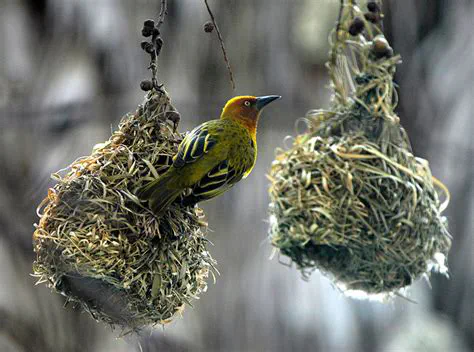
Biosemiotics
Biosemiotics is an interdisciplinary research agenda investigating the myriad forms of communication and signification found in and between living systems. It is thus the study of representation, meaning, sense, and the biological significance of codes and sign processes, from genetic code sequences to intercellular signaling processes to animal display behavior to human semiotic artifacts such as language and abstract symbolic thought.
Recent updates
Recent articles from Biosemiotics
Icon, Index, Symbol: Deepening Histological Understanding Through Semiotics and Embodiment
January 19, 2026
Histological images convey more than just color and shape; they …
How Do Organisms Measure Spacetime? Measurement by the Insider Players
December 27, 2025
Organisms live their own spacetime. How do they measure it? Obviously, …
Biosemiotics Against Nihilism: Biosemiotics as Science, Literature and Metaphysics
December 23, 2025
Nihilism is the condition in which life is portrayed as meaningless. …
Bioindicator Benthic Macroinvertebrates as Semiotic Agents: A Biosemiotics-Oriented and Ethical Reframing Toward Meaningful Sustainability
December 19, 2025
A Biosemiotic View on Edible Identity
December 4, 2025
Dominant perspectives on human interactions with food often emphasise …
Latest Blog Posts
Gatherings in Biosemiotics 2026 Sheffield
The Gathering will be hosted by the University of Sheffield’s School of Architecture and Landscape, which is part of the Faculty of Social Sciences.
Read More
Gatherings 2026
Where The Gathering will be hosted by the University of Sheffield’s School of Architecture and Landscape, which is part of the Faculty of Social Sciences.
Read More
New website!
We have updated our website! We expect this website to be faster and easier to access. Please make sure to give it a visit and in case you find any issues, please do let us know by writing to webmaster at biosemiotics.org!
Read More
Registration to Gatherings 2025 open
Please fill in the form here to register for the 2025 Gatherings in Biosemiotics.
Read More
The 25th Annual Gatherings in Biosemiotics (GIBS)
In Rotterdam, The Netherlands
25-29 August, 2025
The Gatherings in Biosemiotics is the annual meeting of world scholars studying sign processes in living systems. Since 2001, these meetings have taken place, and they also serve as the annual meeting of the International Society for Biosemiotic Studies (ISBS).
Read More
Recent articles from Biosemiotics
Icon, Index, Symbol: Deepening Histological Understanding Through Semiotics and Embodiment
January 19, 2026
Histological images convey more than just color and shape; they …
How Do Organisms Measure Spacetime? Measurement by the Insider Players
December 27, 2025
Organisms live their own spacetime. How do they measure it? Obviously, …
Biosemiotics Against Nihilism: Biosemiotics as Science, Literature and Metaphysics
December 23, 2025
Nihilism is the condition in which life is portrayed as meaningless. …
Bioindicator Benthic Macroinvertebrates as Semiotic Agents: A Biosemiotics-Oriented and Ethical Reframing Toward Meaningful Sustainability
December 19, 2025
A Biosemiotic View on Edible Identity
December 4, 2025
Dominant perspectives on human interactions with food often emphasise …
Latest Blog Posts
Gatherings in Biosemiotics 2026 Sheffield
The Gathering will be hosted by the University of Sheffield’s School of Architecture and Landscape, which is part of the Faculty of Social Sciences.
Read MoreGatherings 2026
Where The Gathering will be hosted by the University of Sheffield’s School of Architecture and Landscape, which is part of the Faculty of Social Sciences.
Read MoreNew website!
We have updated our website! We expect this website to be faster and easier to access. Please make sure to give it a visit and in case you find any issues, please do let us know by writing to webmaster at biosemiotics.org!
Read MoreRegistration to Gatherings 2025 open
Please fill in the form here to register for the 2025 Gatherings in Biosemiotics.
Read MoreThe 25th Annual Gatherings in Biosemiotics (GIBS)
In Rotterdam, The Netherlands 25-29 August, 2025 The Gatherings in Biosemiotics is the annual meeting of world scholars studying sign processes in living systems. Since 2001, these meetings have taken place, and they also serve as the annual meeting of the International Society for Biosemiotic Studies (ISBS).
Read MoreBiosemiotics and its masters
Biosemiotics is a collective endeavor built upon the works of those who have cleared a path for us.




